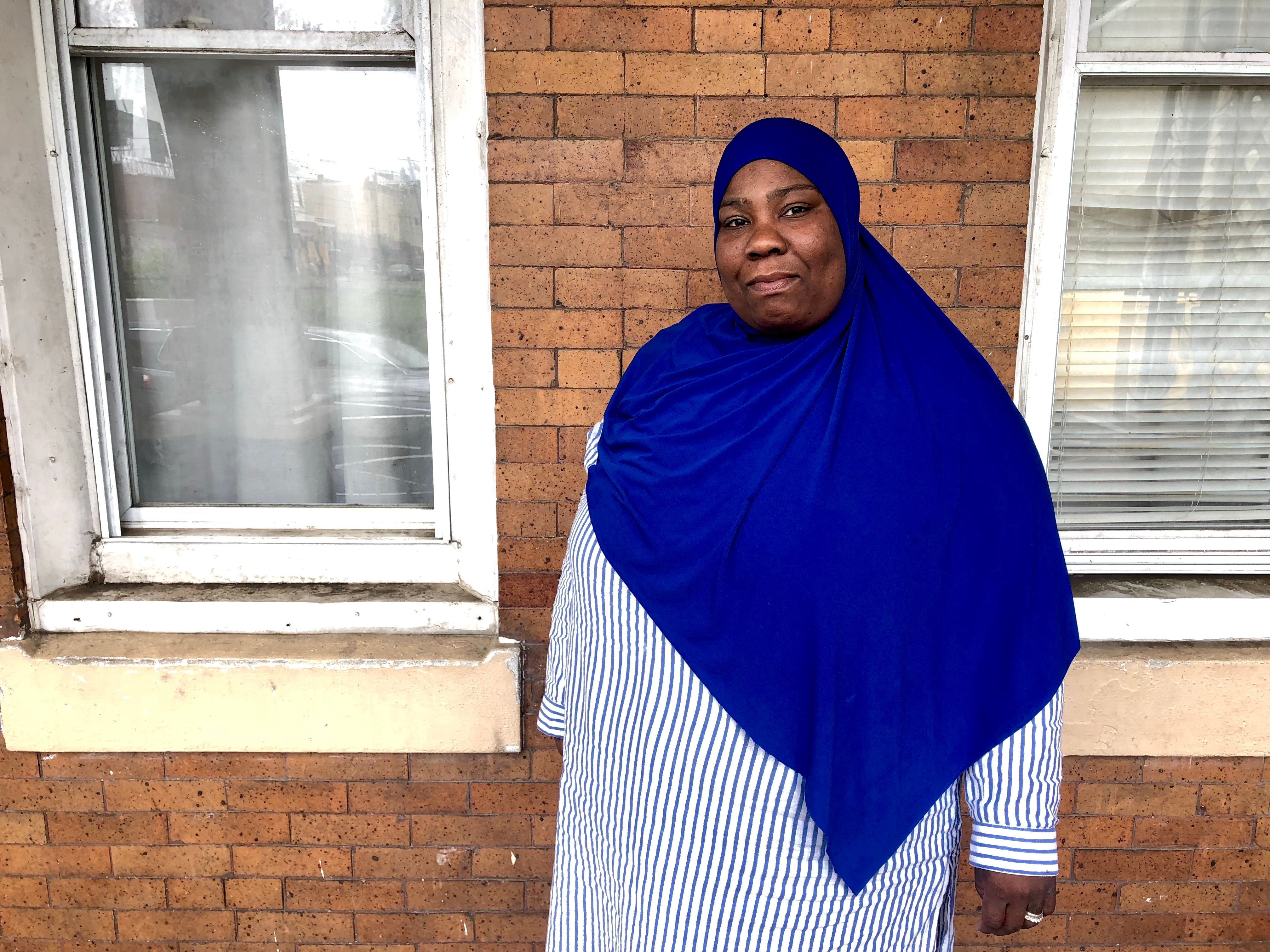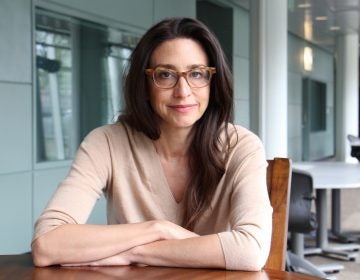Not just Starbucks: Shopping while black
Being a black, Muslim woman who wears a hijab, this isn’t the first time Nekia Pressley has faced discrimination
Listen 1:18
Nekia Pressley was accused of stealing a hoagie as she carried a package with prescription medication. (Darryl C. Murphy for WHYY)
The arrest of two black men waiting for a business partner in a Philadelphia Starbucks in April put a high-profile spotlight on discrimination that people of color experience every day. Social media hashtags — #nappingwhileblack #movingwhileblack #diningwhileblack #golfingwhileblack #BBQingwhileblack — and almost daily headlines emerged after a slew of incidents in which white people called the police on African-Americans who were doing ordinary things.
This week, WHYY is bringing you personal accounts of everyday discrimination that rarely make the headlines.
—
Nekia Pressley is one of the 75 million Americans diagnosed with high blood pressure. She’s had it for at least a year.
“I get it off and on, sometimes,” said the 38-year-old. “I get headaches if I don’t take my medicine”
Like others with the condition, she makes a regular trek to the pharmacy for medication. She fills her prescription every month at a major chain grocery store near Oxford Circle, a 20-minute drive from her home in North Philadelphia, where she lives with her three children.
Pressley , a devout Muslim who wears a hijab to cover her head, normally walks in the store, goes to the pharmacy counter, purchases her medication, and, if there is no shopping to be done, leaves. Unbothered.
In early January, that all changed.
On her way out of the store after a routine pickup, Pressley was confronted at the exit by an employee, a white, middle-aged woman, demanding she “give up the hoagie.” The woman had been following her through the store, Pressley suspects, and had confused the white bag of medicine under her arm for a sandwich she thought Pressley was attempting to steal.
Pressley was mortified. Shoppers were entering and exiting the store as she pulled out the bag of medication from under her arm, proving her innocence. The employee turned “beet red,” said Pressley. But, instead of apologizing, she simply said, “Oh, OK,” then went on with her business.
“It was embarrassing and humiliating,” said Pressley. “Just really embarrassing.”
She complained to the manager on duty, and, after some internal investigation, Pressley was offered a $10 gift card. But when she attempted to claim it weeks later, she was rejected.
“I didn’t get anything,” she said. “And I believe the lady still works there.”
For many black people who’ve been falsely accused by a white person of committing a crime, calling the police would be something to avoid. But Pressley said she was so outraged that she considered calling the police herself. Or would’ve welcomed it had the store clerk done so.
“If she would’ve called the cops, that would’ve been better,” she said. “Because it would’ve shown that she was in the wrong. And if the cops would’ve bothered me, I definitely would’ve had a million-dollar lawsuit, because what did I do?”
Pressley still goes to the store, mainly to “get another white bag” from the pharmacy, she joked. But she doesn’t shop there as much. The incident turned her off. She now frequents other grocery stores, sometimes going so far as Clementon, New Jersey.
Being a black, Muslim woman who wears a hijab, this isn’t the first time Pressley has faced discrimination. She’s been profiled and ticketed by police, and she’s been stopped in airports while traveling.

She says she doesn’t “pay it any mind” And she’s not rattled by seeing countless other incidents where black people have been profiled — leading to a call to police — and then defending themselves against no wrongdoing..
“You have to be mindful of what you do,” she said. “Watch all your surroundings, and know your rights. And stand for what you know. Because I’m still going to say what I am going to say and have my freedom of speech. I don’t care about a cop or who you are. If I’m right, I’m right. You’re not going to change that.“
WHYY is your source for fact-based, in-depth journalism and information. As a nonprofit organization, we rely on financial support from readers like you. Please give today.





